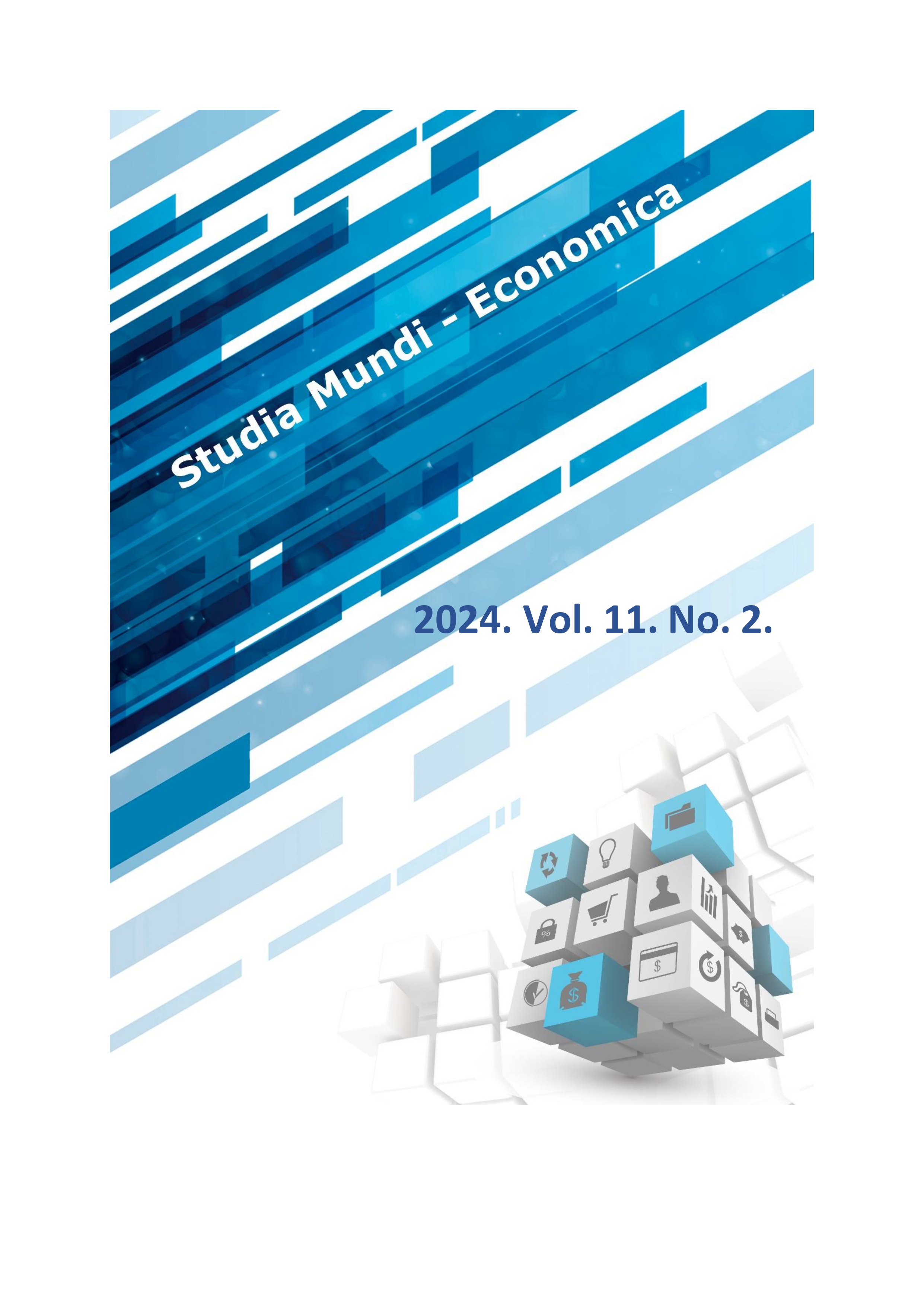Regional Integration in Africa: Progress of Agenda 2063
DOI:
https://doi.org/10.18531/sme.vol.11.no.2.pp.17-28Schlagwörter:
Regional integration, Agenda 2063, Regional Policy, African UnionAbstract
Regional integration in Africa is a multifaceted process involving economic, political, and social dimensions. The African Union, established in 2002, has emerged as a key actor in fostering cooperation among African nations. The development of Agenda 2063 by the African Union serves as a strategic framework aimed at fostering socio-economic development and regional integration throughout the continent, addressing the diverse challenges confronting African countries. However, with the conclusion of the initial phase of Agenda 2063 in 2023, it is evident that many African countries are struggling to achieve the set goals. The attainment of these objectives appears to be beyond the reach of most African countries, with projections indicating that they may only materialize well beyond the target year of 2063. This paper critically examines the progress made by the African Union in implementing regional policies during the first decade and assesses the challenges encountered in promoting cohesive regional governance to realize the objectives outlined in Agenda 2063 in Southern Africa.
Literaturhinweise
Ademola, A. A. (2022). real deal or an unworkable framework? Agenda 2063, SDG Goals and the Challenges of Development in 21st Century Africa. Available at: https://www.un.org/osaa/sites/www.un.org.osaa/files/7._adedeji_ademola_agenda_2063_sdg_goals_an
Africa Union. (2024). Goals & Priority Areas of Agenda 2063. https://au.int/agenda2063/goals
African Development Bank (2020) ‘South Sudan Economic Outlook’, Available at: https://www.afdb.org/en/countries/east-africa/south-sudan/south-sudan-economic-outlook [Accessed 30 January 2024].
African Union (2024) African Union Website https://au.int/ (Accessed January 2024)
African Union Development Agency (AUDA-NEPAD). (2024). Agenda Dashboard Version 2. Retrieved from https://nepad.org/agenda-dashboard-v2 [Accessed 30 January 2024].
Asare-Nuamah, P. (2019). Understanding African Integration from African theoretical perspective. Ethiopian e-Journal for Research and Innovation Foresight (Ee-JRIF), 9(2).
DeGhetto, K., Gray, J.R. and Kiggundu, M.N. (2016). The African Union's Agenda 2063: Aspirations, challenges, and opportunities for management research. Africa Journal of Management, 2(1), pp. 93–116.
Gray, Jacob. (2016). The African Union's Agenda 2063: Aspirations, Challenges, and Opportunities for Management Research. Africa Journal of Management. 2. 93–116. https://doi.org/10.1080/23322373.2015.1127090
Hettne, B & Söderbaum, F (1998) The New Regionalism Approach. Pre-publication manuscript, Politeia, Vol 17, No 3.
Ibrahim, R. L. (2022). Beyond COP26: can income level moderate fossil fuels, carbon emissions, and human capital for healthy life expectancy in Africa?. Environmental Science and Pollution Research, 29(58), 87568–87582.
Kozár, L.; Neszmélyi, G. I. (2014). Water Crisis in the Nile-Basin -: Is It Really a Zero Sum Game? Journal Of American Business Review, Cambridge (USA) 2 : 2 pp. 91–98. , 8 p.
Magoke, P. and Öke, M.K., Coordination Between The African Union And Regional Economic Communities Towards Achieving Regional Integration In Africa. İstanbul Ticaret Üniversitesi Dış Ticaret Dergisi, 1(1), pp. 1–14.
Mlambo, V. H., Thusi, X. . And Gift Ndlovu And, S. . (2022) “The African Union’s Agenda 2063 For Africa’s Development: Possibility Or Ruse?”, Prizren Social Science Journal, 6(3), pp. 64–74. https://doi.org/10.32936/pssj.v6i3.358
Moyo, D. (2009) Dead aid: Why Aid Is Not Working and How There Is a Better Way for Africa. Penguin.
Neszmélyi, G. I. (2014). A Nílus vízhozamának megosztása – regionális együttműködés vagy konfliktus?. Tér és Társadalom 28 : 1 pp. 99–112. , 14 p. (2014) https://doi.org/10.17649/TET.28.1.2575
Ogunnubi, O., & Akinola, A. (2017). South Africa and the Question of Hegemony in Africa. Journal of Developing Societies, 33(4), 428–447.
Oguntuase, O.J., 2021. Africa, 2030 Agenda and Agenda 2063: The Imperative of Transnational Governance. In Handbook of Research on Institution Development for Sustainable and Inclusive Economic Growth in Africa (pp. 1–14). IGI Global.
Royo, M.G., Diep, L., Mulligan, J., Mukanga, P. and Parikh, P., 2022. Linking the UN Sustainable Development Goals and African Agenda 2063: Understanding overlaps and gaps between the global goals and continental priorities for Africa. World Development Sustainability, 1, p. 100010.
Soumahoro, M., Kinkoh, H., Aikins, E.R. and Louw-Vaudran, L., (2023). Tracking Africa's implementation of Agenda 2063 milestones. ISS Peace and Security Council Report, 2023(155), pp. 11–14.
Tella, O. (2018). Agenda 2063 and Its Implications for Africa’s Soft Power. Journal of Black Studies, 49(7), pp. 714–730.
Sule, B., Yahaya, M.A., Ating, R. and Rabiu, S. (2019). Globalisation and Consolidation of Dependency and Underdevelopment in Africa. Journal of Social and Political Sciences, 2(2).
Downloads
Veröffentlicht
Ausgabe
Rubrik
Lizenz
Copyright (c) 2024 Nene Siphesihle

Dieses Werk steht unter der Lizenz Creative Commons Namensnennung - Nicht-kommerziell - Keine Bearbeitungen 4.0 International.
A folyóirat Open Access (Gold). Cikkeire a Creative Commons 4.0 standard licenc alábbi típusa vonatkozik: CC-BY-NC-ND-4.0. Ennek értelmében a mű szabadon másolható, terjeszthető, bemutatható és előadható, azonban nem használható fel kereskedelmi célokra (NC), továbbá nem módosítható és nem készíthető belőle átdolgozás, származékos mű (ND). A licenc alapján a szerző vagy a jogosult által meghatározott módon fel kell tüntetni a szerző nevét és a szerzői mű címét (BY).






